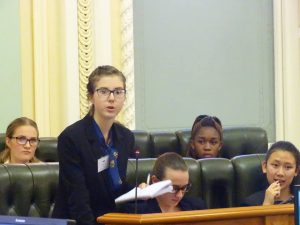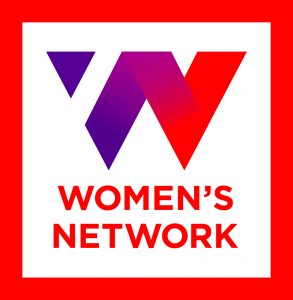 Name: Jasmine Elliott
Name: Jasmine Elliott
Community, State: Gladstone, QLD
School: Toolooa State High School
Age: 15, Grade: 11
Bio: Click here
Jasmine’s Power Trip is generously being sponsored by Maurice Blackburn Lawyer’s Women’s Network, who are helping us empower young rural women. Thanks Maurice Blackburn! 
Why is gender equality important to you and your community?
You may have heard this riddle:
A father and son have a car accident and are both hurt. They are taken to separate hospitals. When the boy is taken in for an operation, the surgeon says ‘I cannot do the surgery because this is my son’. How is this possible?
The answer seems obvious now; the surgeon is the son’s mother. Yet, many people have to think twice. To be honest, I had to too- and I’m an aspiring female surgeon.
In fact, the ingrained stereotypes surrounding careers and the seemingly unbreakable link to gender, are the most influential aspects of gender inequality that I have encountered. It’s an issue which young people in my region face also.
I clearly recall attending a medical experience day. Initially, we were asked which specialisation we wished to pursue. As I have been thoroughly interested in orthopaedic surgery since I completed work experience that was my answer.
Orthopaedics and surgery are male-dominated specialties. In fact, in 2010 only 3% of orthopaedic surgeons were female (Royal Australasian College of Surgeons). Compare this to the 90% of nurses that are female and you get an appalling statistic (Australian Bureau of Statistics). Thus, people are always surprised when I say this is my ultimate goal. During lunch, I was approached by one of the medical students. He talked to me about transplant surgery. Why? Because my hands are small… because, being a female, I’m not strong enough to go into orthopaedics. In all honesty, I could benefit from more exercise, but that’s not the point.
The point is, that young females’, and males’ goals are shaped by expectations consistent with their gender. As The Conversation details, the ‘cultural messages in medicine perpetuate a distinctly masculine stereotype of, ‘the typical surgeon.’ This results in what is called a hidden curriculum; underlying messages that aren’t explicitly taught, but are highly influential. This language is reflective of that used in engineering some 20 years ago.
This isn’t the only aspect of gender inequality that permeates regional Australia and Australia in general, but it can have a monumental impact on the legitimacy of people’s dreams. Gender equality is vital in my community for the boys who aspire to be teachers, nurses and hairdressers. And the girls who dream of being engineers, builders, pilots, politicians, fighting on the front-line, or operating in theatre.
You will get there… we will get there.
